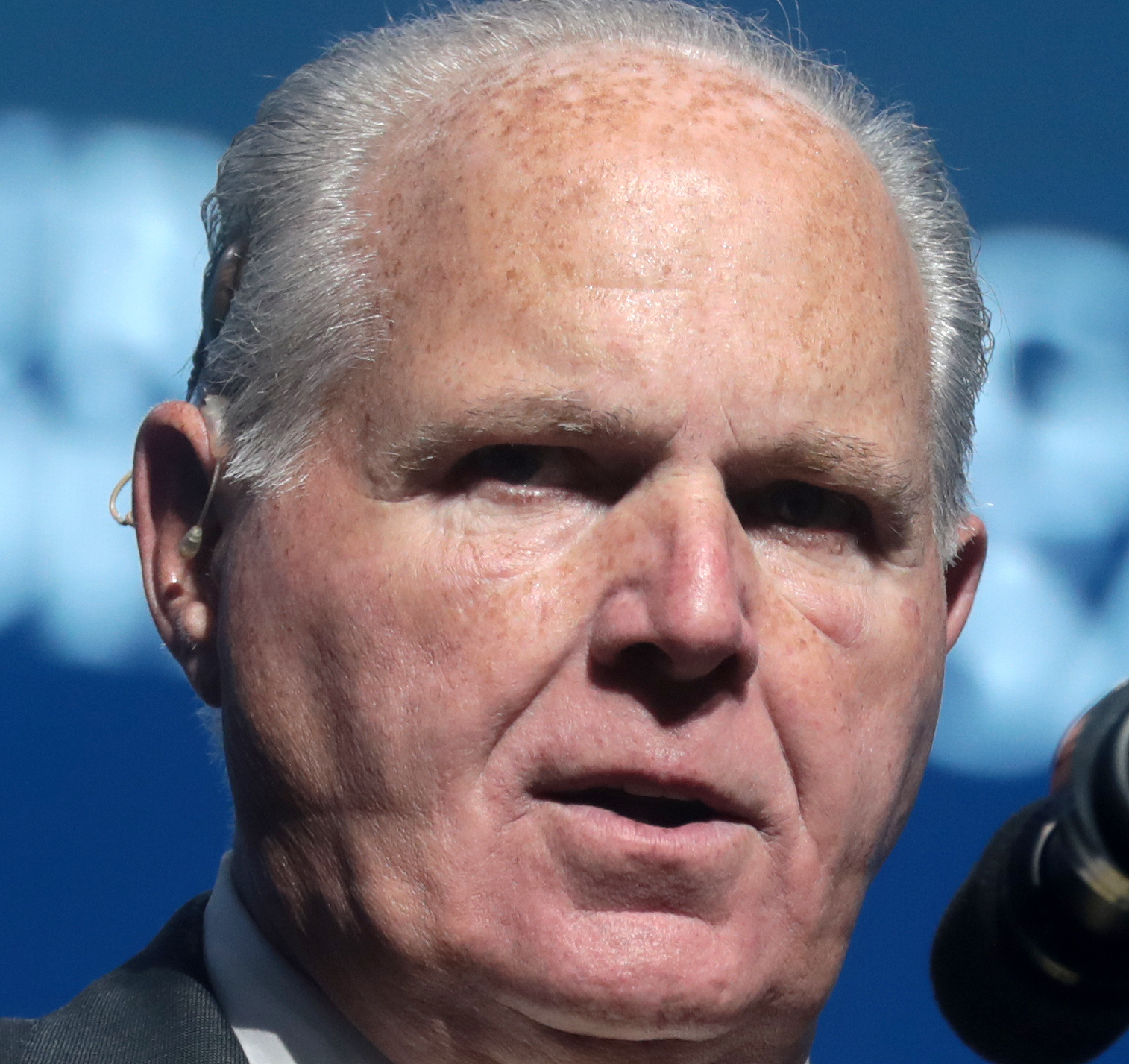The new movement in American politics is unlikely to disappear anytime soon.
Who’s Afraid of Rush Limbaugh’s Audience?

Conservatives would be mistaken to throw Rush and his fans under the bus.
In its response to the death of Rush Limbaugh, elite opinion dripped with the same disgust it directed toward the movement that produced the Trump presidency. Limbaugh, we read, was the voice of irredeemable bigots, motivated by anger and fear. He was the hero of backwards hatemongers, bitterly clinging to their guns and their religion. He spoke for government of the deplorables, by the deplorables, and for the deplorables.
The Washington Post—an outlet that eulogized Abu Bakr al-Baghdadi as an “austere religious scholar”—decried Rush’s “relentless bashing of liberals, feminists and environmentalists,” which allowed him “to…lead the Republican Party into a politics of anger and obstruction.”The New York Times—whose obituary for Qassim Suleimani pointed out that the “master of Iran’s intrigue” was seen as “a larger-than-life hero” with an “asceticism and quiet charisma” that “joined to create an image of a warrior-philosopher”—attacked Limbaugh as the “divisive darling of the right” for his “mockery, grievance and denigrating language,” which “traffick[ed] in conspiracy theories” and “foment[ed] mistrust, grievances and even hatred on the right for Americans who did not share their views.”
Twitter was even worse. Soon after the news broke, former Democratic congresswoman Katie Hill—who spun her three-way with an ex-husband and a young legislative assistant into a juicy narrative of feminist empowerment—tweeted: “So is Rush Limbaugh going to go down in history as the worst person to ever receive the presidential medal of freedom or is there someone else?” Another blue checkmark was more blunt still: “Rush Limbaugh was a foul fuck rat who spread nothing but hate & terror throughout his career. His radio show poisoned hundreds of millions of people’s minds. He’s a racist, a misogynist, & homophobe. His death brings me joy.” Endless obituaries warned readers of the talk show host’s bigotry and conspiracy theories.
The bitterness beneath the surface of all this grave-dancing reflects frustration with the simple fact that Rush was charismatic and funny. The anger he provoked demonstrates why he was so popular in the first place: As the first viable alternative to the dominant media narrative in at least a generation, the Rush Limbaugh Show showed millions of Americans that, on matters of political opinion, expert credentials and elite approval meant nothing. Limbaugh spoke for the indignation and frustration of the half of the country whose leaders were supposed to represent them and were instead working hard to retire them.
Rush activated millions of Americans whose political disengagement worsened apace with this betrayal— while all while the institutional conservative movement and the establishment GOP remained asleep at the wheel. “This country has been conservative in its heart for the longest time,” he told a reporter after the 1994 Republican Revolution, the historic victory that was widely attributed to his influence. “It didn’t always vote that way, but it has now.” If today’s Right wants any chance at winning at all, we will need to activate more latent “conservatives of the heart.” They may not be readily identifiable by their love of cigars or golf, but they are out there, and there are still many of them.
With Friends Like These
Despite Rush’s accomplishments, some elite conservatives struggle to accept his place in their coalition. The well-manicured story that conservative intellectuals tell themselves about their movement—William F. Buckley founds National Review, Barry Goldwater wins the 1964 Republican nomination, Reagan takes the presidency, and the rest, well, the rest is history—ignores the role that grassroots populist energy always plays in the Right’s political victories. To admit this would require embracing the deplorables, thereby losing one’s status in polite society. The leaders of the Right still feel the pressures of class allegiance, and still covet the acceptance of the same credentialing institutions that disdain Rush and his audience.
Exhibit A: The most vocal core of the Never Trump cohort tripped over itself to signal allegiance to the approved anti-Limbaugh narrative. David French devoted his newsletter to attacking him for “embracing Michael Anton’s famous ‘Flight 93’ essay with open arms,” and for “minimizing the coronavirus.” In an interview with NPR, Charlie Sykes mourned the fact that Rush “normalized racism and misogyny and cruelty in a way that had long-term implications, so that by the time Donald Trump came around, you had a lot of Americans that kind of liked that style.” And Joe Walsh wrote an entire article in Time assuring readers that he, too, was shocked and disgusted by everything that Rush represented: “This is Rush Limbaugh’s legacy…the destruction of truth, the manipulation of his audience and the promotion of conspiracies. This area of dishonesty I find most troubling because it is pervasive in the conservative media world.”
While Rush was sometimes prone to exaggeration and falsehoods—all of which have been catalogued exhaustively in the mainstream media by now—he was right more often than his conservative critics would like to admit. At the very least, Walsh, Sykes, and French’s willingness to parrot the left’s talking points on the heels of Rush’s death vindicate his distaste for the stale conservatism they represent. This Bulwark-ian politics of appeasement and capitulation is exactly what conservatives must abandon to have a fighting chance at victory.
Rush was ahead of his time in seeing how our elite institutions were hardening against conservatives. He captured this insight in 1994, in his speech to the incoming Republican congressional majority:
You will never ever be their friends…. They don’t want to be your friends. Some female reporter will come up to one of you and start batting her eyes and ask you to go to lunch. And you’ll think, “Wow! I’m only a freshman. Cokie Roberts wants to take me to lunch. I’ve really made it!” Don’t fall for this. This is not the time to get moderate. This is not the time to start trying to be liked.
This approach to politics is alien to the patrician conservative establishment (with a few notable exceptions), but it’s the only proven way to resist the increasingly suppressive clampdowns and cancellations: Don’t apologize. Don’t seek approval. You don’t owe them anything. The only way out is through.
By contrast, the subtext of the Never Trumpers’ condemnations of Rush is clear: I’m on your side. I’m one of the good ones. Please don’t cancel me. Eat me last. Rush didn’t crave the approbation of our elite institutions—he disdained it, and welcomed its disdain in turn. In so doing, he robbed liberals and progressives of their power. In refusing to capitulate to their cancellations, Rush became un-cancellable. Conservatives should learn to do the same.
The American Mind presents a range of perspectives. Views are writers’ own and do not necessarily represent those of The Claremont Institute.
The American Mind is a publication of the Claremont Institute, a non-profit 501(c)(3) organization, dedicated to restoring the principles of the American Founding to their rightful, preeminent authority in our national life. Interested in supporting our work? Gifts to the Claremont Institute are tax-deductible.
Trump should delegitimize the left—and attack the dens of intolerance in higher education.
A patriot passes.



